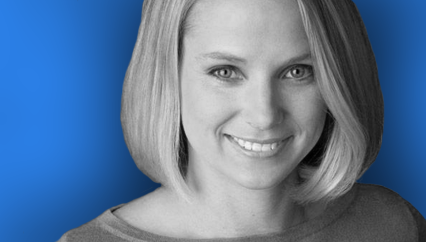
culled from:theenhancelife.com
Earlier this month, Fortune’s Most Powerful Women Summit featured a lineup of some of the world’s most preeminent women in business. With backgrounds in government, philanthropy, technology, education and the arts, this council of leaders made for wide-ranging and
inspiring
discussion.
We’ve pulled eight ideas in particular that will ring true for CEOs of any gender, nationality or expertise:
Pick your battles.
Yahoo CEO Marissa Mayer was once advised that there are really just a few decisions a CEO must make, but that “you need to make them perfectly.”
For Mayer, one of these commitments has been to find the right people. Since she took over, Yahoo has hired more than 1,000 new engineers and 50 Ph.D.s. These numbers seem to have perked up a lot of ears, as Yahoo received 17,000 applications in the last quarter alone.
Chill out.
In response to how she feels about the “having-it-all” debate, Xerox CEO and chairman Ursula Burns said she thinks what people really need is to chill out now and then.
“As long as I’ve been alive discussing this, and even before, this concept of having it all—that’s not the point,” she said. “Pick the places where you want to be great, focus your energies there, and then go do it … Understand you’re not going to be great at everything, and then relax.
Create an equal environment.
Sheryl Sandberg, COO of
Facebook
, has become perhaps the most visible advocate for workplace equality through her “Lean In” movement.
“I understand that I have resources most people don’t have,” said Sandberg. “Most people in this room have resources most people don’t have. But leaning in is about equality … and it’s up to all of us to close those gaps.
Take risks, but build support first.
Sallie Krawcheck, who quickly climbed the ranks at Citigroup and Bank of America, understands the pressure of leadership. While some of her decisions have gone incredibly well, others have resulted in the loss of her job.
Krawcheck relayed, “I think the difference between when I was very successful in taking risks and when I wasn’t was the amount of support I had around me and the amount of support I managed to build.”
Never stop learning.
Krawcheck also believes everything from making her clients more money to placing more women in senior corporate positions is all about one thing: knowledge.
“I hope we all keep learning,” she said. “There’s sort of a view in media that, you said something fifteen years ago—defend it! If we’re not going to keep learning and changing and incorporating new information into our careers, shame on us.”
Embrace transparency.
Transparency is a necessary component to developing deeper relationships, especially in the business world. According to Disney/ABC Television Group President Anne Sweeney, the first step is to let go of the supposed need for corporate control.
“[Communities] want to interact with you,” she said. “You can’t hold everything back if you expect to have a relationship.”
Become a storyteller.
To truly capture the attention of an audience, business leaders need a compelling story. Consumers want an interesting reason to buy a product, support a cause or pay attention to an advertisement. Sweeney explains it like this: “You’re hosting the party initially. But if you’re good at it, you truly become a part of that community.”
A successful storyteller is willing to not just listen to but also involve the audience. At HSN, customers have several platforms where they can submit feedback and even participate in product development. To HSN CEO Mindy Grossman, a company is not just a receptacle for feedback. To her, “If you invite a community in and ask for feedback, you better be responsive.”
Identify your passion — and let it guide you.
Once the highest-ranking woman at Microsoft, Patty Stonesifer later ran the Bill and Melinda Gates Foundation and is now president and CEO of Martha’s Table, a nonprofit in Washington, D.C. that provides food and support services.
To those who hope to make such a career jump, Stonesifer emphasized the importance of identifying what really drives you in life, and realizing that “you’re seeking passion in a different way.”
Having retired from Microsoft at age 40, Stonesifer has also learned when to walk away. “Even the best jobs in the world have a sell-by date,” she said.







